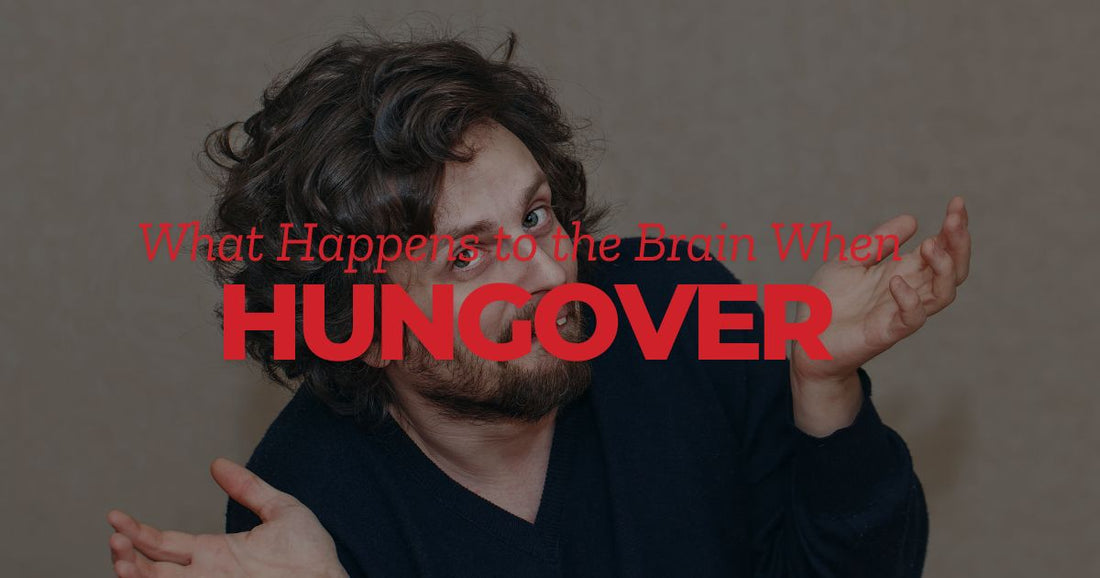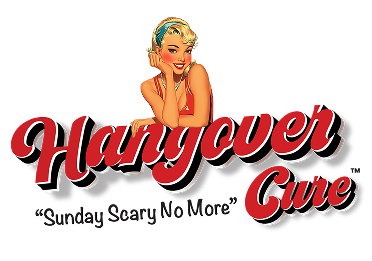
What Happens to the Brain When Hungover?
Share
A hangover isn’t just a physical ordeal—it’s a neurological one. That groggy, foggy, headache-ridden feeling after a night of drinking is your brain recovering from the effects of alcohol. But what exactly happens inside your brain during a hangover, and why does it leave you feeling mentally sluggish? In this blog, we break down the science of "hangover brain," debunk common myths, and offer expert-backed solutions to help you recover faster.
How Alcohol Disrupts Brain Function
Alcohol alters brain chemistry in multiple ways, leading to the classic symptoms of a hangover: headaches, brain fog, fatigue, and mood swings. Let’s explore how it disrupts neurotransmitters, hydration levels, and inflammation in the brain.
The Role of Neurotransmitters – GABA, Glutamate, and Dopamine
- GABA (Gamma-Aminobutyric Acid): Alcohol increases GABA activity, creating a calming, sedative effect. However, once alcohol leaves your system, GABA levels drop, leading to anxiety and restlessness.
- Glutamate: This excitatory neurotransmitter is suppressed when drinking. As alcohol wears off, the brain overcompensates, leading to restlessness, difficulty concentrating, and even mild withdrawal symptoms.
- Dopamine: Alcohol temporarily boosts dopamine, making you feel euphoric. The next day, dopamine levels crash, contributing to feelings of depression and sluggishness.
How Alcohol Causes Dehydration and Brain Shrinkage
- Alcohol is a diuretic, meaning it increases urine production, leading to fluid loss.
- Dehydration reduces cerebrospinal fluid, which cushions the brain, contributing to headaches.
- Brain cells temporarily shrink due to dehydration, leading to cognitive impairment and brain fog.
The Effect of Acetaldehyde Toxicity on the Brain
- Alcohol metabolizes into acetaldehyde, a toxic compound that triggers inflammation in the brain and body.
- Acetaldehyde buildup disrupts neurotransmitters, exacerbating brain fog, headaches, and nausea.
Why Do Hangovers Cause Brain Fog and Headaches?
Dehydration and the Brain’s Fluid Imbalance
- The brain relies on proper hydration for function. Fluid loss leads to reduced oxygen and nutrient transport, worsening mental fatigue.
Inflammation and Increased Cytokine Levels
- Alcohol triggers an inflammatory response, increasing cytokines that affect mood, cognition, and energy levels.
- Chronic inflammation from repeated drinking can lead to long-term brain function issues.
Sleep Disruption and Memory Impairment
- Even if you sleep after drinking, REM sleep is disrupted, leading to poor memory consolidation and increased fatigue.
- Sleep deprivation compounds cognitive impairment, making it harder to think clearly the next day.
Debunking Hangover Brain Myths
Does Coffee Help a Hangover?
- Myth: Coffee “cures” a hangover by waking you up.
- Truth: While caffeine may temporarily improve alertness, it doesn’t address dehydration or inflammation and can worsen headaches.
Can You “Sweat Out” a Hangover?
- Myth: Exercise or a sauna session can help eliminate alcohol faster.
- Truth: Alcohol is metabolized by the liver, and sweating does not speed up the process. Intense workouts while dehydrated can worsen symptoms.
Is Hair of the Dog a Real Cure?
- Myth: Drinking more alcohol can help “cure” a hangover.
- Truth: More alcohol temporarily numbs withdrawal symptoms but prolongs the recovery process and depletes nutrients further.
How to Help Your Brain Recover from a Hangover Faster
Hydrate with Electrolytes to Rebalance Brain Fluids
- Drink water with electrolytes to replenish sodium, potassium, and magnesium lost due to alcohol’s diuretic effect.
Replenish B Vitamins and Antioxidants for Cognitive Recovery
- B Vitamins: Essential for brain function and reducing brain fog.
- Antioxidants (Vitamin C, Glutathione): Help combat inflammation and oxidative stress.
Get Quality Sleep and Avoid More Alcohol
- Prioritize deep sleep by avoiding screens, keeping your room cool, and drinking water before bed.
Try Hangover Cure Supplements for Faster Mental Clarity
- Science-backed ingredients such as electrolytes, B-complex, and antioxidants help combat brain fog and support cognitive recovery.
Why Hangover Cure Supports Brain Recovery
Science-Backed Ingredients to Replenish Nutrients
- Hangover Cure’s formula includes electrolytes, B vitamins, and herbal detoxifiers that aid in faster recovery.
Helps Reduce Inflammation and Brain Fog
- Anti-inflammatory compounds in the formula help lower cytokine activity, reducing hangover severity.
Formulated for Hydration, Detox, and Mental Clarity
- A comprehensive blend of hydration boosters, liver support, and brain nutrients designed to get you back on track quickly.
Frequently Asked Questions About Hangover Brain Fog
How long does it take for the brain to recover after drinking?
- Recovery time varies, but mild hangovers clear within 24 hours, while heavier drinking may take up to 72 hours for full brain recovery.
Can alcohol permanently damage brain cells?
- Occasional drinking does not cause permanent damage, but chronic alcohol abuse can shrink brain regions responsible for memory and decision-making.
What are the best supplements for hangover recovery?
- Look for electrolytes, B vitamins, antioxidants, and herbal liver detoxifiers to speed up recovery.
Conclusion
A hangover is your brain’s way of telling you it needs time to recover from alcohol’s effects. While symptoms like brain fog, fatigue, and headaches are temporary, proper hydration, nutrients, and rest can speed up recovery.
Looking for a science-backed way to reduce hangover brain fog and feel better faster? Try Hangover Cure today and experience the difference.
Shop Hangover Cure Now for rapid recovery and mental clarity!

